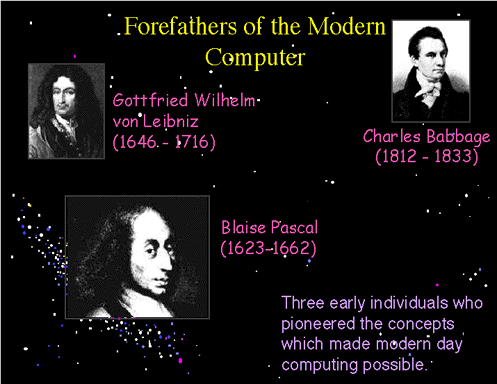For over a thousand years after the Chinese invented the abacus, not much
progress was made to automate counting and mathematics. The Greeks came up
with numerous mathematical formulae and theorems, but all of the newly
discovered math had to be worked out by hand. A mathematician was often a
person who sat in the back room of an establishment with several others and
they worked on the same problem. The redundant personnel working on the
same problem were there to ensure the correctness of the answer. It could
take weeks or months of labourious work by hand to verify the correctness
of a proposed theorem. Most of the tables of integrals, logarithms, and
trigonometric values were worked out this way, their accuracy unchecked
until machines could generate the tables in far less time and with more
accuracy than a team of humans could ever hope to achieve.
Computers: From the Past to the Present
The Forefathers of Computing Science:
Last modified July 30, 2006
©1994-2006 by Michelle A. Hoyle
